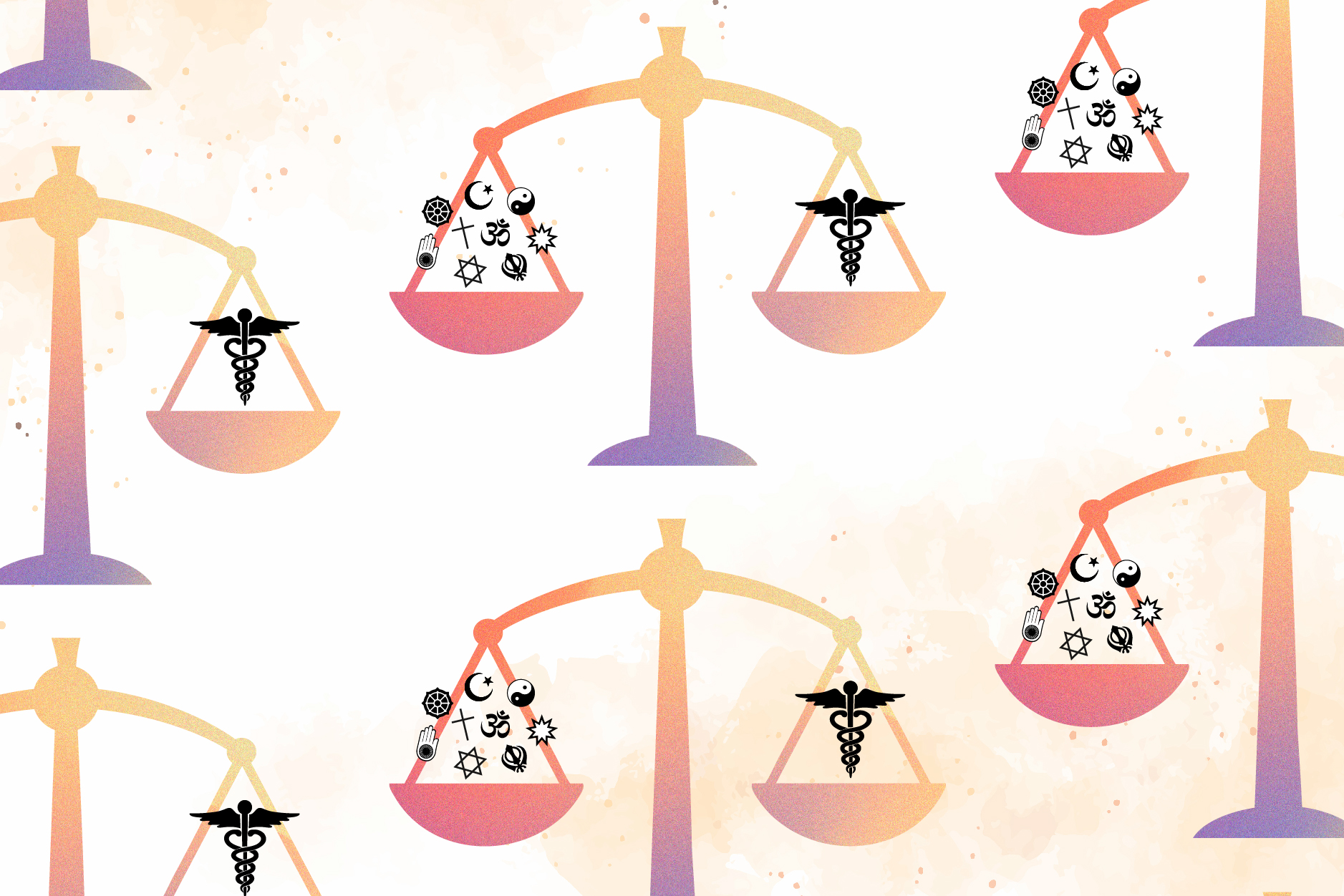The Triangle of Conscience

Conscience impacts health care as it relates to the health care institution, the patient/family, and the provider(s). Each of these consciences impacts the other. For example, the religious affiliation of a facility can influence the patient’s treatment options as well as the services that a health care provider is able to offer.
Click on each category below for additional information.
Health Care Institution
Facility or institutional conscience is impacted and protected by federal and state laws, U.S. Department of Health and Human Services (HHS) guidelines, organizational policies and procedures, and, for many faith-based facilities, Ethical and Religious Directives (ERDs).
Provider
Provider conscience describes each provider’s deeply held individual ethics regarding right and wrong and their interpretation of their professional obligations. These beliefs are often influenced by their religious and/or moral beliefs. A provider’s conscience may conflict with the conscience of the facility and/or the patient.
Patient/Family
Every patient and family have their own personal moral and/or religious beliefs about what medical treatments are right and wrong for them. These beliefs may evolve over time as the patient ages and/or as their medical needs change.
- Ex – Jehovah’s Witness patient refusing blood transfusion due to belief that accepting this treatment will preserve their earthly life at the cost of going to heaven when they die.
